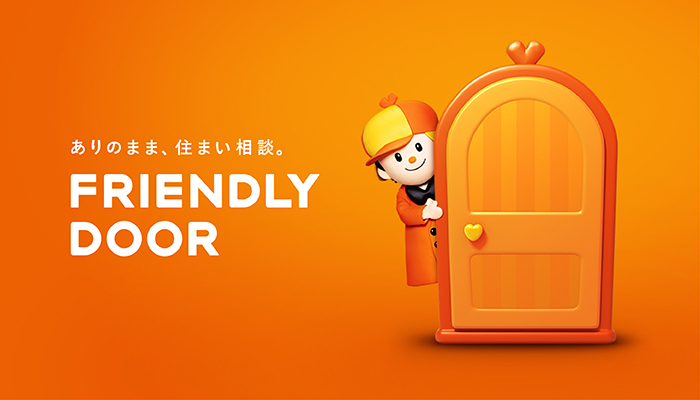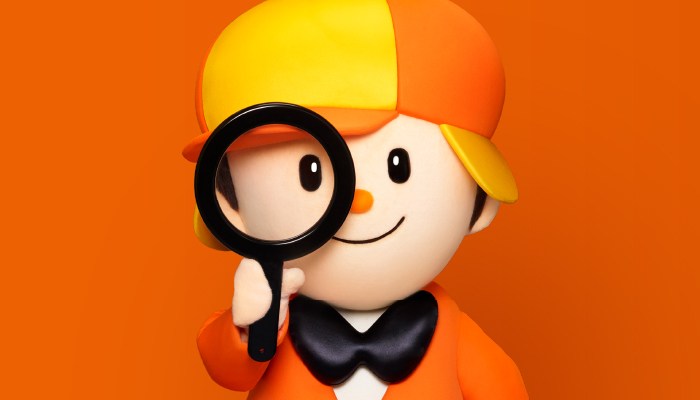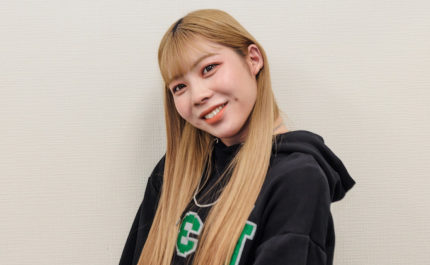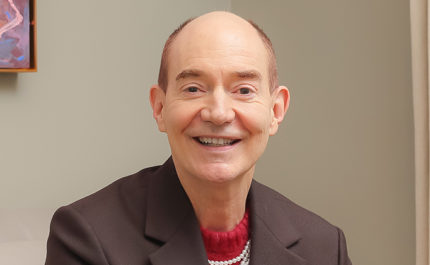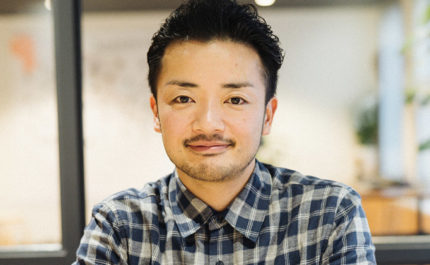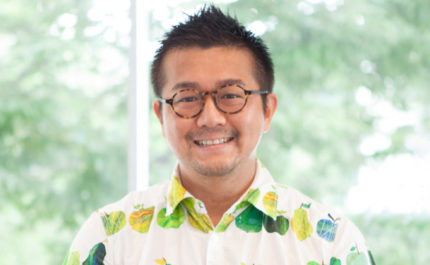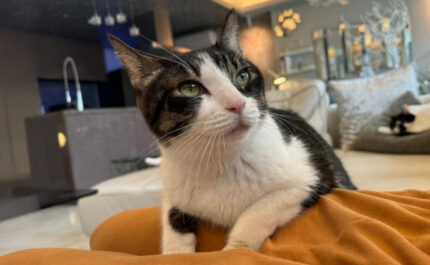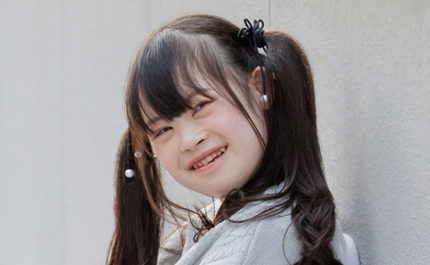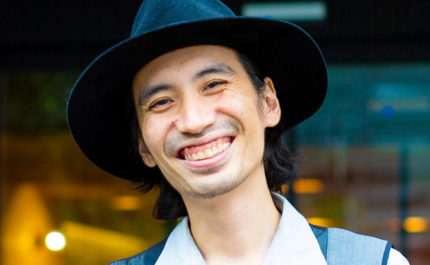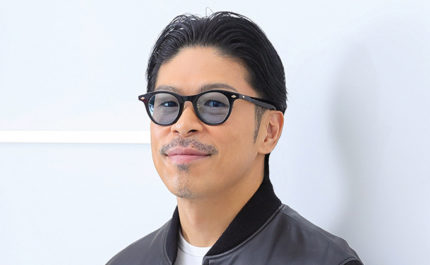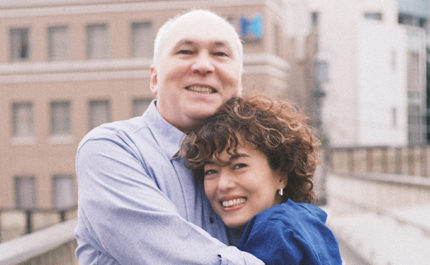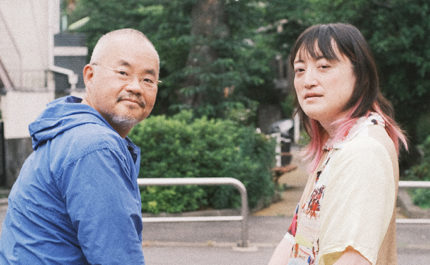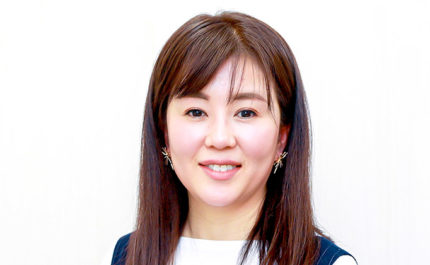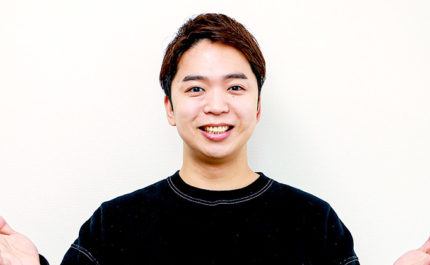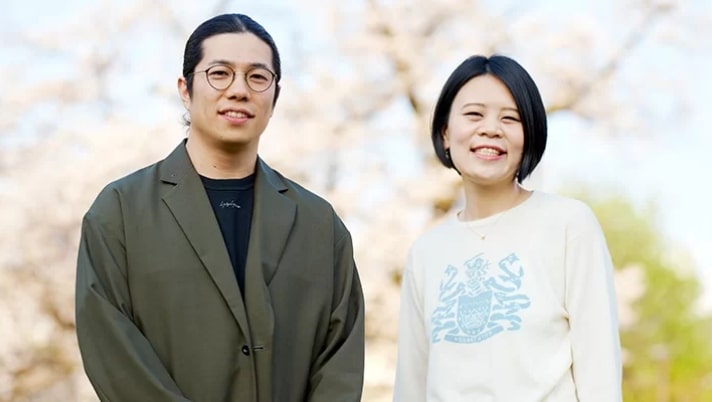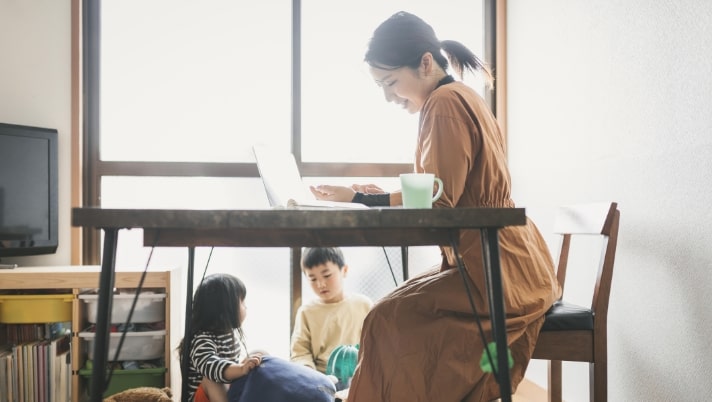Finding a place for yourself in society – The “Monk in High Heels,” Kodo Nishimura, embodies a way of life that is uniquely his own.
Kodo Nishimura, active as both a Buddhist monk and a makeup artist, has been featured in various media as "The Monk in High Heels" and has over 120,000 followers on Instagram (as of April 2024).
Drawing on his perspective and experiences as an LGBTQ+ individual, he has delivered speeches at venues such as the United Nations Population Fund Headquarters in New York, Stanford University, and Zōjō-ji Temple. In 2021, he was chosen as one of TIME Magazine's "Next Generation Leaders," taking a place on the global stage.
Nishimura reveals the surprising past in his book, This Monk Wears Heels: Be Who You Are (Watkins Publishing, 2022) , stating, "To be honest, I've always thought of myself as inferior." What has been his journey to find his place and live as his true self?
From his upbringing, which he describes as a "dark period," to his current activities, learn more about his story and his marriage to his same-sex partner.
連載 自分の居場所は今の社会にはない、なんてない。
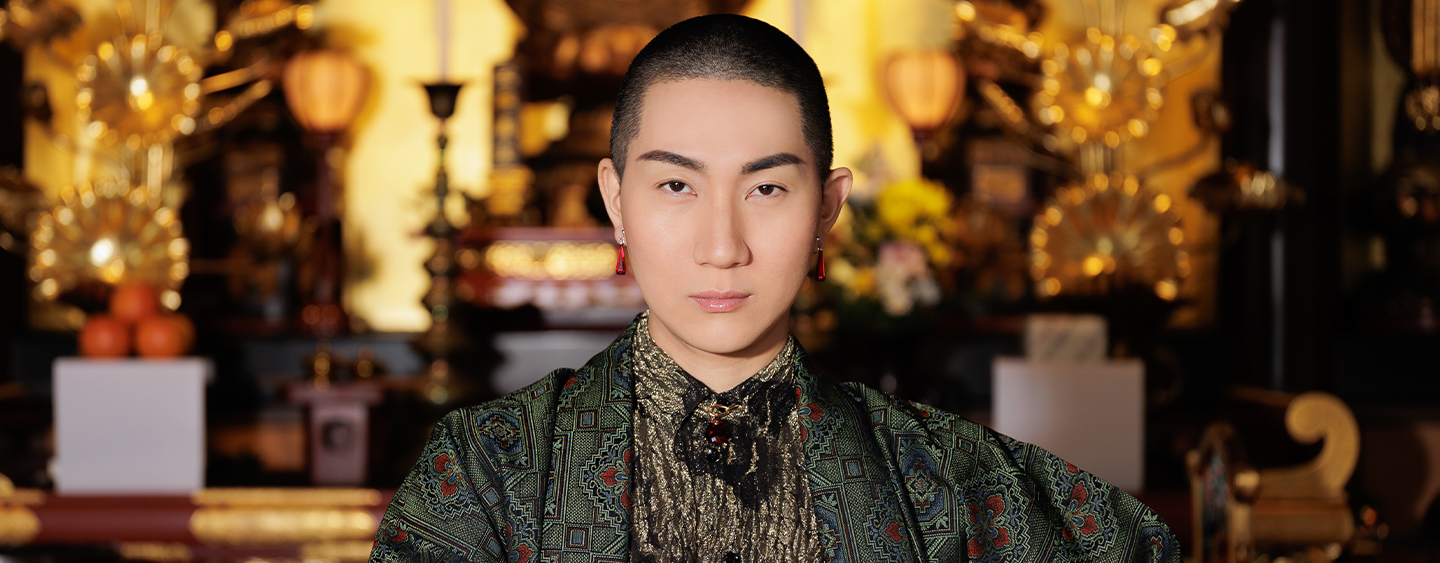
With a growing awareness of SDGs (Sustainable Development Goals) and diversity in the international community, it is increasingly common to hear messages such as "Let's embrace diversity" and "Let's live as our true selves."
However, stereotypical values and preconceived notions of "how things should be" remain deeply rooted in our daily lives. In such a society, some may deny to themselves that they do not fit into the framework of what is considered "normal" or "conventional" or feel a sense of alienation by thinking, "There's no place for me."
Kodo Nishimura, whom we interviewed for this piece, is a Buddhist monk, makeup artist, and LGBTQ+ activist who thrives in the world by embracing his individuality and identity.
In his book, Nishimura writes, "I felt guilty for not being 'normal,' and I lived my life hiding my honest feelings." Yet, he has found a place where he can live authentically. Hear the message he wants to convey to those struggling with living inauthentically.
“I thought I couldn’t be myself because I was ‘Japanese’ or ‘homosexual.’ But in fact, I realized that I may have put that curse on myself.”
Love Knows No Boundaries
In September 2023, Nishimura married his Colombian same-sex partner. Reflecting on marrying someone of the same sex and of a different nationality, he recalls that it was by no means an easy journey.
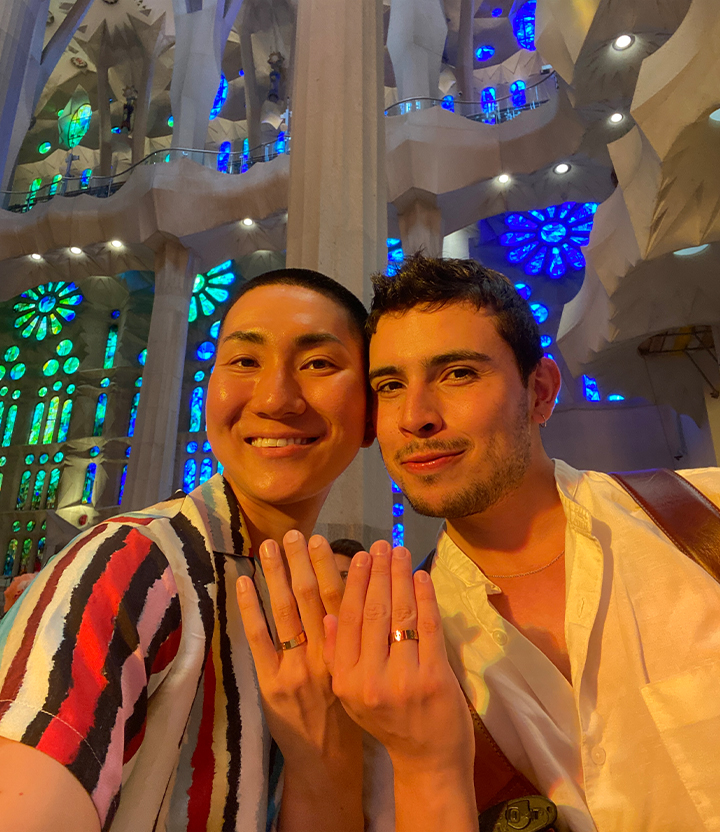
“We met while I was traveling in Barcelona, Spain. I was sitting next to him in a Spanish bar and asked him to join me. He was a graphic designer and a passionate philanthropist, and we hit it off right away because of our similar interests and concerns.
After a long-distance relationship, we lived together in the UK for three and a half months. We then went to Colombia to get married. However, even in a country where same-sex marriage is legal, there was probably no precedent for marriage between same-sex couples with Japanese and Colombian nationalities, and the application process was extremely complex.
Ultimately, we could not collect enough documents to get married during my five-week stay, so we went to Japan together and then planned another visit to Colombia.
Despite facing numerous hurdles, why were they so adamant about getting married? The answer is surprisingly simple.
“I just wanted to live with him, that’s all. As a couple with different nationalities—Japanese and Colombian—we had no choice but to use the legal marriage system to live together as a ‘family.’ In case Juan wouldn’t get a work visa in Japan, we would need to be married to obtain a spouse visa in other countries where they legalize marriage equality.
A few months later, we were finally able to get married, and at the same time, luckily his work visa application in Japan was approved, so now we live together in Japan.”
In Japan, same-sex couples are not yet legally recognized, and I feel deeply troubled that other same-sex couples might not have this option. Also by the fact that in the event of illness, accident, or other “what if” situations, we would be treated as ‘strangers.'”
Realizing “I Couldn’t Be Accepted Just as I am”
Today, Nishimura preaches the importance of living freely and making the most of one’s individuality and identity. At the core of his beliefs are memories from his childhood when he was unable to fully express himself.
“While everyone else was enjoying dodgeball and tag in the kindergarten playground, I was alone in a corner, drawing pictures of my favorite Sailor Moon characters and Disney Princesses. I loved wearing my mother’s dresses and playing princess, and I would say, ‘Look I’m a girl, Mommy!’ When my parents asked why I didn’t play with boys, I would say, ‘I hate boys!’ and that seemed to trouble my mother.”
Disliking rules and regulations that didn’t seem to make sense, he only wanted to do things he truly believed in. He didn’t understand why he had to study and sometimes crumpled up his homework or was made to stay after class alone.
Though Nishimura showed strength of will from an early age, he gradually became silenced by the “differences” between himself and those around him.
“I became interested in a boy from the same kindergarten. Even at the age of three, I remember feeling that I had to hide my feelings from my parents and teachers, because in the cartoons I watched when I was little, homosexuals were portrayed as villains or ‘creepy’ and eccentric characters.”
At that time, he didn’t have an accurate understanding of his sexuality. Nonetheless, whenever he heard the words “be masculine” or “you’re a boy,” he began to realize that he couldn’t accept himself as he was.
Finding Salvation in the Online World and English skills During the “Dark Period”
This sense of suffocation intensified after Nishimura entered high school. He looks back on his three years in high school as the most challenging “dark period” of his life.
“I went to a private college preparatory high school, but I was at a standstill academically and lost all my previous friendships. The division between boys’ and girls’ groups became even more stark, and as someone who didn’t fit into either group, I was always alone in the corner of the classroom.
I was afraid that people would find out I was homosexual, so I spent more and more days not talking with anyone. The hardest thing for me was not only the loneliness, but the fact that I could not be myself.”
What filled Nishimura’s loneliness was the world of the Internet. After school, he immersed himself in online chats with fellow young homosexuals requiring his proficiency in English. On the other side of the screen were people from all over the world with similar experiences, and he connected with them, sharing his worries and true feelings. In his spare time, he also attended English conversation classes, honing his English skills.
As he was exposed to movies and music through these interactions, he developed a strong yearning for the US, a country where freedom and diverse values exist.
“I thought that if I went out into the world, there might be people who could sympathize with the questions I had been asking myself for a long time, such as ‘Why do I have to study subjects I’m not interested in?’ or ‘Why am I discriminated against based on my sexuality?
I thought, ‘I have a hard time living in Japan, but maybe in the US, I would be able to breathe.’ I began to have hope that the world might be more open and tolerant than I had thought.”
Values Shaken by Encounters and Experiences in the US and Spain
After graduating from high school, Nishimura fulfilled his dream of studying abroad at a two-year college in Boston, USA. Through his interactions with people from various backgrounds, the “armor” that had tightly encased him gradually began to peel away.
“I learned that there are countries in the world where people face life-threatening violence and persecution just for being LGBTQ+ and that even people who seem happy from the outside have problems and struggles that others do not understand.
Above all, it was a big step forward for me to realize that it was I myself who was trapped by attributes and frameworks.
Until then, I had thought that the reason I could not be my true self was because I was ‘Japanese’ or ‘homosexual,’ but perhaps I had been the one placing a curse on myself. That’s how I came to think of it.”
Little by little, his thinking became more positive, and the scope of his activities expanded. He joined an LGBTQ+ community in a church in Boston, making friends with people like him in the real world for the first time. Furthermore, events in Spain during solo travels and the sights he saw in New York greatly shook Nishimura’s values.
“My close gay friend I made in Spain openly held hands and kissed his beloved partner in public, unabashedly enjoying their relationship. I was shocked to see that he had also come out to his parents and was accepted. Having left Japan without being able to confide in my parents about my identity, I was dazzled by the way he was living his life as himself.
I also gained great courage from the large LGBTQ+ parade (New York Pride Parade) that I saw in New York City. I felt that I was not inferior and that I could live my life as I was without hiding my identity. I felt this kind of message from the people walking ahead of me.
“The Path I’ve Avoided”: Buddhism and Coming Out to My Parents
From a young age, Nishimura had an interest in makeup. After graduating from a two-year college in Boston, he transferred to Parsons School of Design in New York. Outside of school, he apprenticed under a renowned makeup artist for five years before embarking on a professional makeup career.
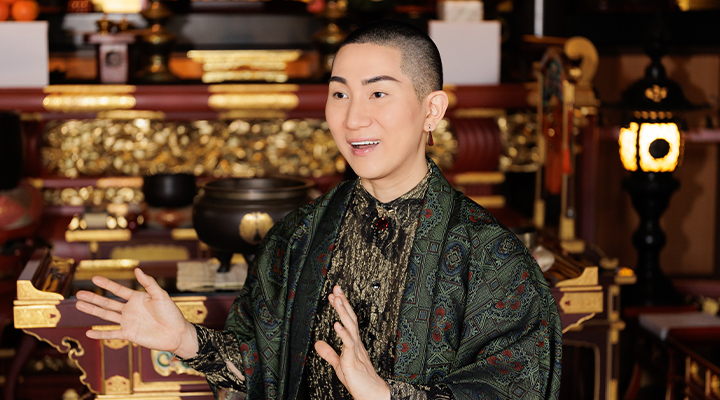
“In Japan, I couldn’t bring myself to do makeup because I thought, ‘I’ll be ridiculed for doing makeup as someone born male.’ But here (in the US), gender at birth doesn’t matter, and everyone freely enjoys fashion and makeup. I didn’t want to put a lid on my mind, worrying about what others would think.”
He excelled as a makeup artist, working with representatives from various countries at the Miss Universe pageant and receiving high praise from celebrities and models. However, at the age of 24, he decided to return to Japan and began training in Buddhism.
What caused this change of heart that led Nishimura to choose the path of Buddhism, something he says he had always avoided?
“I was born into a temple family, but my parents never asked me to take over the temple. I had always admired long hair and didn’t want to shave my head like a monk, and I thought it was nonsense to worship wooden dolls (Buddhist statues).
However, I also thought that if I didn’t face my roots in Buddhism properly at least once, I wouldn’t be able to truly change. I felt I was not qualified to deny or criticize something without deeply understanding it.
I also thought that by studying Buddhism, the roots of my Japanese identity, I would be able to express myself in a way that only I could.”
There was another thing he had avoided for a long time: coming out to his parents.
“No matter how much I wanted to be myself and no matter how much I loved my job, I always had this lingering fear that if I told my parents I was homosexual gay, they would abandon me. It was like a cobweb always hanging over my head.”
Some of the friends he had met overseas were in same-sex relationships with the knowledge and support of their parents. Seeing them encouraged Nishimura.
“I felt more and more that I didn’t want to live my life hiding from the people I care about, so after I returned to Japan, I took the plunge and came out to my parents before entering the temple for a monk training.
To my surprise, my father said, ‘It’s your life, so do what you want with it.’ I realized that my parents wished for my happiness in their own way, even if they didn’t clearly express it in words. I’m not exaggerating, but it was as a black and white film turned into technicolor.
At the age of 24, I felt as if my true life had finally begun.”
Connecting Three Titles: Monk, Artist, LGBTQ+ Activist
Currently, Nishimura stands out as a unique presence, known as the “Monk in High Heels.” Monk, makeup artist, LGBTQ+ activist. At first glance, these three titles may seem contradicting from each other, but in his mind, they are all connected.
At the core of his efforts is the desire to “encourage and support those who are struggling to be their true selves.”
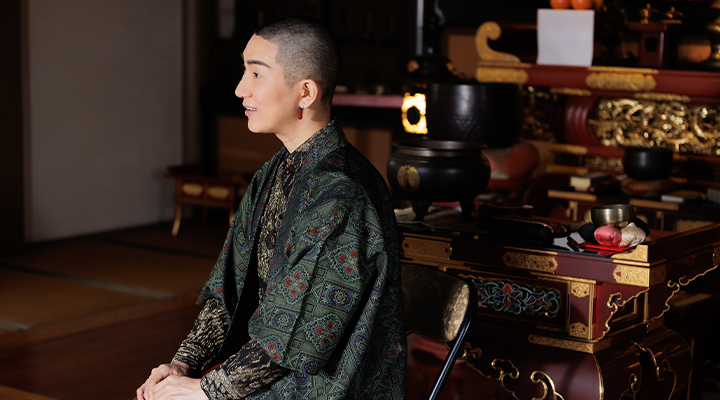
“By dressing up with makeup and fashion, you can learn to love yourself more and gain self-confidence. I believe makeup has a ‘magical’ power like that. Through Buddhism, which teaches that everyone can be saved equally, I hope to encourage and support people in various ways.”
Behind these activities lies a special sentiment unique to Nishimura, who has overcome prejudices and discrimination.
“There are people who are suffering because of stereotypical roles and images of what a monk or LGBTQ+ person should be. Therefore, I think that by daring to mix things that seem dissimilar, the essence of what they really are will come to the surface. I want to overturn the traditional images of monks and LGBTQ+ people.”
In recent years, there has been an accelerating trend in Japanese society to respect differences in work culture, lifestyles, and sexuality. However, entrenched preconceptions and stereotypes remain, leading some to deny their true selves for not fitting the “normal” or “common sense” mold, feeling they have no place.
To those people, Nishimura advises, “Try to find someone who understands you, even if it’s just one person.
After finding friends in the US and Spain who shared similar experiences, I felt an immense burden lifted. Seeing peers who had come out to parents, happily living with same-sex partners – those ‘walking a bit ahead’ – was a major motivating force supporting me from behind.
Even if you don’t go abroad, you can expose yourself to new values and perspectives by attending lectures, watching videos and reading books. It’s also helpful to learn about history and human nature, asking yourself, ‘Why doesn’t discrimination ever stop?’
There may be moments when you may feel despair, thinking ‘No one will ever understand me,’ or ‘I’m all alone.’ But somewhere in this world, there must be someone who understands you. So, don’t worry. That’s what I want to convey.”
Nowadays, feeling trapped in an undesirable situation is often expressed with terms like “life/birth lottery.” Circumstances involving family or employment that cannot be improved through individual effort alone are unfortunately quite common. Some may pessimistically think “Why me?” or “Why was I given this fate?” However, by not stifling your potential and refusing to give up on living authentically, a path can open. The world around you is not all there is. As Nishimura says, there’s surely a place where you belong.
Therefore, I view the spread of the concept of "diversity" in Japanese society today in a positive light - it means "preparations are underway to create a world where each individual can live more comfortably."
For those who feel a sense of exclusion, feeling like they don't belong where they are, I encourage you to have the courage to explore a world that breaks the framework of your "normal" or "common sense." In this vast world, there are surely many predecessors who have made immense efforts to establish their identities and many friends who will understand and empathize with you.
Interview and article: Aya Ajimi
Photography: Eriya Osaki
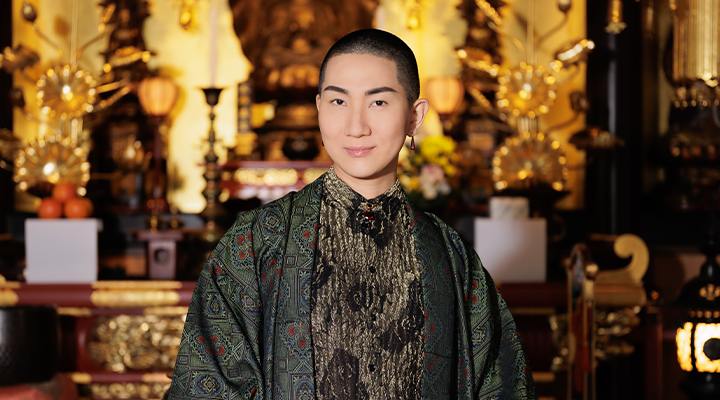
Born in Tokyo in 1989. After graduating from Parsons School of Design in New York, Nishimura worked as a makeup artist based in the United States. In 2015, he became a priest of the Pure Land sect of Buddhism. As an LGBTQ+ activist, he spreads the message of "equality regardless of gender or race" and has spoken at venues such as Harvard University and appeared on shows such as “Queer Eye We’re in Japan!” on Netflix. In 2021, he was selected as a "Next Generation Leader" by TIME magazine, and in 2022, he served as a judge for a popular televised New Year’s Eve song contest, NHK Kohaku Uta Gassen. His book "This Monk Wears Heels: Be Who You Are" (Watkins Publishing, 2022) has been translated into seven languages.
X @kodonishimura
Instagram @kodomakeup
みんなが読んでいる記事
-
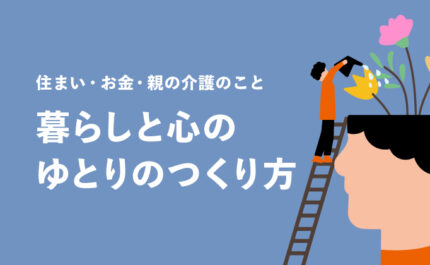 2025/08/07暮らしと心のゆとりのつくり方 〜住まい・お金・親の介護のこと〜
2025/08/07暮らしと心のゆとりのつくり方 〜住まい・お金・親の介護のこと〜独り暮らし・資産形成・親の介護など、人生の転機に必要な住まい選び・不動産投資・介護の知識をわかりやすく解説します。
-
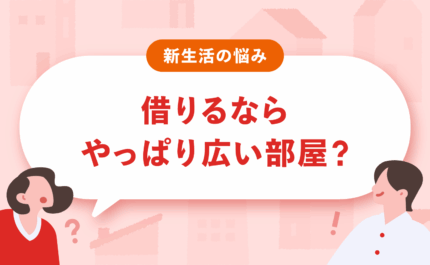 2026/01/30借りるならやっぱり広い家? 「みんなと同じ」を卒業する、自分だけの「心地よさ」が見つかる部屋選びの基準
2026/01/30借りるならやっぱり広い家? 「みんなと同じ」を卒業する、自分だけの「心地よさ」が見つかる部屋選びの基準春からの新生活、部屋探しの基準に迷っていませんか?上京予定のミツルと物件好きのエル先輩が、広さや新築にこだわらない「自分だけの心地よさ」を見つけるコツを解説。世間の常識を卒業して、本当に満足できる住まい選びを始めましょう。
-
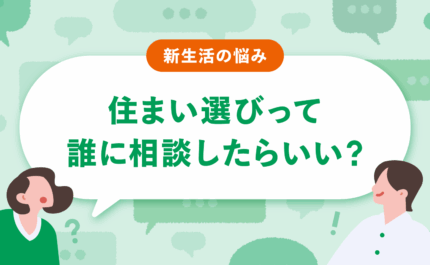 2026/01/30住まい選びって誰に相談したらいい? 不動産屋に行く前に、AIホームズくんと始める「部屋探しの作戦会議」
2026/01/30住まい選びって誰に相談したらいい? 不動産屋に行く前に、AIホームズくんと始める「部屋探しの作戦会議」住まい選び、誰に相談すべきか迷っているあなたへ。不動産屋に行くのが怖いミツルに、エル先輩が24時間相談可能な「AIホームズくん」を伝授。曖昧な条件やワガママもOKなAIを活用して、部屋探しの作戦会議を始めましょう!
-
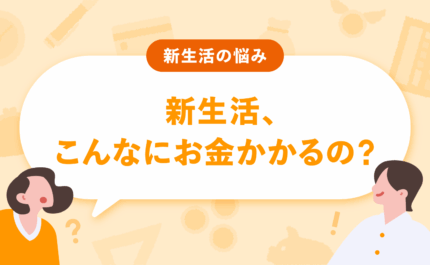 2026/01/30新生活、こんなにお金がかかるの? 予算の壁を突破する、「エリア選び」と「持たない」選択肢
2026/01/30新生活、こんなにお金がかかるの? 予算の壁を突破する、「エリア選び」と「持たない」選択肢新生活の家賃予算に悩むミツルへ、エル先輩が「視点を変える」アドバイス。通勤時間で探す穴場エリアの選び方や、設備を持たずに街の機能を活用する節約術とは?お金のプロ・肉乃小路ニクヨさんの視点も交え、現実的な部屋探しのコツを紹介します。
-
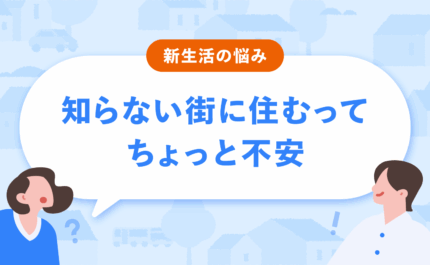 2026/01/30知らない街に住むってちょっと不安? 部屋の外にも「ただいま」と言える場所を持つ、孤独との付き合い方
2026/01/30知らない街に住むってちょっと不安? 部屋の外にも「ただいま」と言える場所を持つ、孤独との付き合い方初めての一人暮らし、孤独や人間関係が不安なミツルへ。エル先輩が「人」や「街の雰囲気」で選ぶ住まい探しを提案。すぐに馴染まなくていい、焦らず街と付き合うコツとは?桜林直子さんのアドバイスも交えた、心温まる新生活のヒント。
「しなきゃ、なんてない。」をコンセプトに、読んだらちょっと元気になる多様な人の自分らしく生きるヒントやとらわれがちな既成概念にひもづく社会課題ワードなどを発信しています。
その他のカテゴリ
-
LIFULLが社会課題解決のためにどのような仕組みを創り、取り組んでいるのか。LIFULL社員が語る「しなきゃ、なんてない。」
-
個人から世の中まで私たちを縛る既成概念について専門家監修の解説記事、調査結果、コラムやエッセイを掲載。
